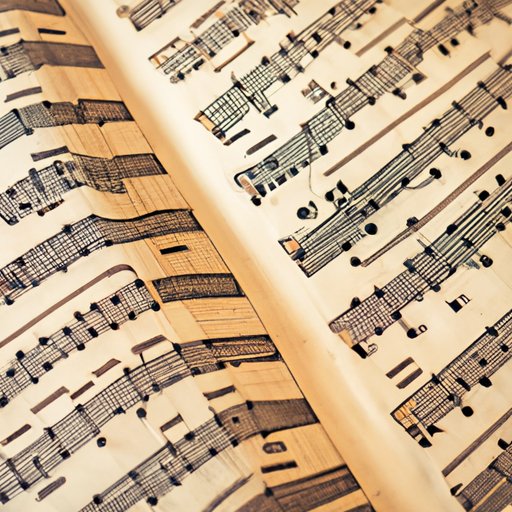Why Is Old Music Better?
Music is one of the most important forms of artistic expression that has evolved significantly over time. While modern music has its unique qualities, many people find themselves drawn to old music, which is considered to be better. This begs the question: why is old music better than modern music? In this article, we will explore the historical significance, authenticity, emotional connection, structural analysis, and timelessness of old music and explain why it surpasses modern music in quality.
Historical Significance
Music has always played a vital role in shaping our culture and society. Throughout history, music has evolved significantly, reflecting the changes and movements in society and culture. The old music that we listen to today is representative of its time and has a historical significance that modern music can not match.
Old music is famous for its distinctive sound quality as it was recorded and produced differently from modern music. In the past, music was recorded directly, without any digital manipulation or editing. The instruments used were also different, often made with wood, gut strings, and other organic materials. The themes and lyrics in old music often reflected significant historical events and socio-political issues of that time.
In contrast, modern music has become more manufactured and repetitive, with an emphasis on drum machines, synthesizers, and auto-tune. The lyrics of modern music tend to be simpler and lack deeper meaning and are often written and produced to catch the audience’s attention quickly.
Authenticity
Old music has an authenticity that cannot be replicated in modern music. This is mainly due to the craftsmanship and artistry that went into producing old music. Musicians in the past had to have significant technical skills to create the music we listen to today. They relied on their talent and creativity rather than manipulating their music using digital software and tools.
Additionally, old music was recorded differently than modern music. In the past, musicians had to perform an entire song perfectly in one take, making it an authentic recording. Today’s music, on the other hand, is often created using digital manipulation, making it less authentic and personalized.
Emotional Connection
Old music has a unique ability to trigger nostalgia, making it easier for listeners to connect with the emotions that the music is trying to evoke. The power of nostalgia lies in the fact that it allows us to relive our past and evoke the same feelings we had when we first heard the old song.
Old music also had more complex and nuanced lyrics than modern music. The lyrics are often poetic, deep, and meaningful, written to communicate powerful messages that touch people’s hearts. Modern music is more focused on creating catchy tunes and lyrics with a superficial meaning, making it less likely for listeners to form an emotional connection.
Structural Analysis
Old music is famous for its musical complexity and technical skills involved in producing it. Compared to modern music, which can be simpler and more accessible, old music requires more significant musical ability to perform and create. The music of the past often had intricate harmonies, modulations, and progressions that required musicians to develop their technical skills.
Modern music, on the other hand, is more focused on creating simple beats, melodies, and repetition, making it easier for the audience to appreciate. While modern music is accessible and enjoyable, old music offers a more profound and gratifying listening experience.
Timelessness
One of the most remarkable things about old music is that it is timeless. The old songs we listen to today have been around for decades and have stood the test of time. These songs continue to resonate with audiences today, evoking the same feelings and emotions they did when they were first released.
Old music has a lasting impact on listeners, making it unforgettable for generations. The music of the past became classics because of the talent and hard work of musicians who dedicated their lives to creating something beautiful and lasting. This is a sense of timelessness that modern music is yet to achieve.
Conclusion
In conclusion, old music has a unique quality that surpasses modern music in terms of historical significance, authenticity, emotional connection, structural analysis, and timelessness. Old music offers a depth and richness that modern music often lacks, making it more gratifying and enjoyable to listen to. While modern music has its positive qualities, nothing compares to the nostalgia and lasting impact of old music.
It is no surprise that old music continues to be relevant today, with many listeners still drawn to its unique qualities. Even as modern music evolves, the classics remain as timeless reminders of the rich history of music and its unique ability to evoke emotions and connect people from all over the world.
(Note: Is this article not meeting your expectations? Do you have knowledge or insights to share? Unlock new opportunities and expand your reach by joining our authors team. Click Registration to join us and share your expertise with our readers.)
